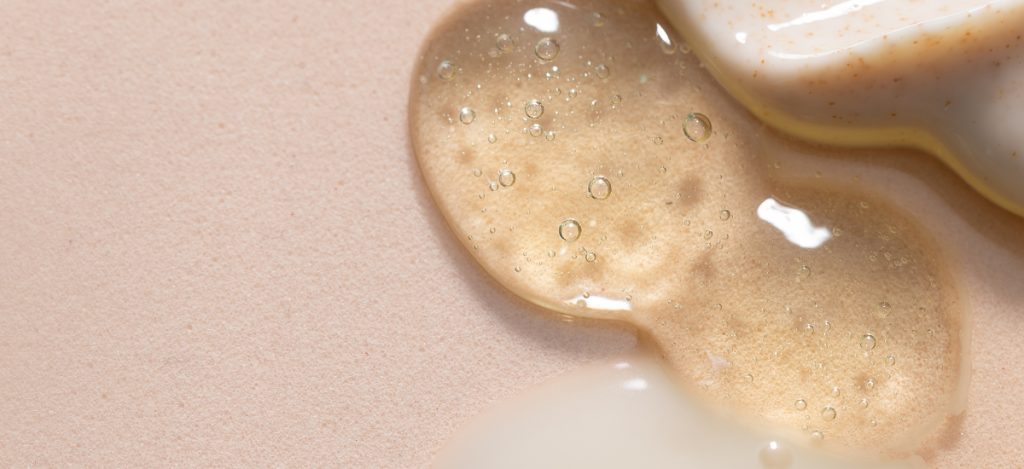Dry skin is a common issue that can affect both the face and the entire body. Itchy, flaky, tight, and rough skin are just some of the troublesome symptoms. The good news? With the right care, you can significantly improve its condition and comfort. Below you will find a comprehensive guide on how to effectively care for dry skin and restore its healthy appearance.
Most Common Causes of Dry Skin
Understanding the causes is key to choosing the right solutions:
- Weather conditions – Cold air, wind, and dry air from heating or air conditioning can dehydrate the skin.
- Hot baths and showers – Prolonged exposure to hot water removes the skin’s natural protective lipids.
- Inappropriate cosmetics – Products containing alcohol, harsh detergents, or fragrances can further irritate and dry out the skin.
- Dehydration – Drinking too little water affects hydration levels, including the skin.
- Health issues – Conditions such as atopic dermatitis, psoriasis, hypothyroidism, or diabetes.
- Skin aging – As we age, the skin loses its ability to retain moisture.
Daily Skincare for Dry Facial Skin
Gentle cleansing: Choose mild micellar gels, milks, or cream emulsions without alcohol or fragrances. Avoid soaps and strong detergents as they can disrupt the skin’s hydrolipidic barrier.
Intensive hydration: Key ingredients: hyaluronic acid, ceramides, panthenol, glycerin, allantoin, squalane. Apply moisturizers twice daily – morning and evening. In winter, opt for more nourishing and oily formulas.
Exfoliation – in moderation: Exfoliate gently once a week with an enzymatic scrub. Avoid mechanical scrubs – they can irritate and worsen dry skin.
Sun protection: Even in winter and on cloudy days, use sunscreens with SPF 30+ – UV radiation damages the skin’s protective barrier.
Body Skincare – Hydration from Head to Toe
- Shower gel
Choose products without SLS/SLES – look for descriptions like “moisturizing”, “for sensitive”, “atopic skin”.
- Reduce bath time
Avoid hot water. Showers should last no longer than 10–15 minutes. After bathing, gently pat your skin with a towel – don’t rub, just press.
- Body lotions and butters
The best time to apply them is right after a bath when the skin is still slightly damp.
Key ingredients to look for: shea butter, coconut oil, urea, lanolin, vitamin E, avocado oil.
- Body oiling
Natural oils such as sweet almond oil, jojoba oil, or argan oil help maintain the lipid barrier and lock moisture into the skin.
Improving Skin Hydration from the Inside
Supplements that support hydration and skin condition can be effective in boosting your daily skincare routine, especially during times of increased dryness, such as winter or sun exposure. Key ingredients include hyaluronic acid, which binds water in the deeper layers of the skin, providing firmness and elasticity, and collagen, which is responsible for the skin’s suppleness and structure. Vitamin C not only helps with collagen synthesis but also protects cells from oxidative stress. Zinc and vitamin E assist in skin regeneration and maintaining proper hydration. Omega-3 fatty acids, which have anti-inflammatory properties, also strengthen the lipid barrier. Regular use of appropriately selected supplements can noticeably improve the hydration of your skin, reduce tightness, and restore its healthy glow – from the inside.
Hyaluronic Acid – Skin Hydration and Firmness
Hyaluronic acid is a naturally occurring compound in the body that plays a crucial role in maintaining moisture, elasticity, and youthful skin appearance. While it’s not technically collagen, due to its strong hydrating and elasticity-boosting properties, it is increasingly referred to as vegan collagen – especially in supplements suitable for a plant-based diet.
How Does Hyaluronic Acid Work?
One molecule of hyaluronic acid can bind up to 1,000 times its weight in water, effectively hydrating deeper skin layers. In a young body, its levels are high, but with age – much like collagen – they start to decline, leading to dryness, loss of firmness, and the appearance of wrinkles. Supplementation helps to replenish these natural losses, supporting hydration from within.
Traditional collagen supplements are derived from fish or animal products. Hyaluronic acid, however, can be obtained through fermentation (from bacteria), making it suitable for vegans and vegetarians. Although not a protein like collagen, it supports similar functions, improving the appearance and condition of the skin, as well as joint and mucous membrane health.
Benefits of using hyaluronic acid as a supplement:
- Deep skin hydration and reduced dryness
- Improved skin firmness and elasticity
- Reduction of fine lines and wrinkles
- Joint support – better lubrication and mobility
- Hydration of the eyes, mucous membranes, and lips
Additional Tips
- Stay hydrated – drink at least 1.5–2 litres of water daily.
- Maintain a balanced diet – eat foods rich in omega-3 fatty acids (fish, nuts, flaxseeds).
- Moisturize the air – use humidifiers, especially during the heating season.
- Dress wisely – avoid wearing wool directly on the skin, choose soft cotton fabrics.
When to Consult a Dermatologist?
If, despite regular skincare, your skin remains severely dry, red, itchy, or cracked, it’s a good idea to consult a specialist. This could be a sign of a chronic dermatological condition that requires treatment.
Dry skin is not just an aesthetic issue – it’s a sign that the skin’s protective barrier is weakened. The key to improvement lies in consistent, mindful care and protection from irritating factors. Give your skin what it needs, and it will reward you with comfort, smoothness, and a healthy appearance.





















